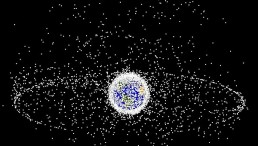Marine conservation is essential in safeguarding and protection of ocean life and its balance. All over the world, countries are conducting programs to cascade and escalate the need to preserve the abundance and rich ecological underwater balance in their regions of responsibility.
With the imperative advocacy of saving fish, corals, and other marine life from extinction, protocols were enforced despite people making out their livelihood in these areas of marine conservation. Cases of disagreeing encounters and at times human rights abuse were documented.
Certain ethnic groups that depend solely on their marine livelihood were noted to being forcefully removed from the areas. The Indigenous Moken Clan near the Thai-Myanmar border for instance, who do their fishing and marine livelihood routine of crab fishing were affected by the local marine conservation code of conduct.
Publishing his study in the journal "Marine Policy", Nathan Bennet, a postdoctoral fellow in the British Columbia University, states that in the implementation of marine conservation, notes of repercussive actions taking place leading to displacement, marginalization, poverty, and at times ending up violently between authorities and people in the areas, reports Phys.Org.
Marine sanctuaries are in the sights of the UN Sustainable Development Goals and Aichi Targets has set marine conservation in their strategic plans for biodiversity at 10% of these sanctuaries around the planet by 2020. Currently, there is no official international protocol to base from. The International Community for marine conservation direly needs one to keep it on track and efficiently do their jobs.
An international group of marine practitioners has a draft on what a global marine conservation code of conduct would look like. It will have fair considerations on social justice, good governance, and accountability practices. The codes of conduct will be applicable to researchers, governments, NGOs, local organizations and the public sector, reports Science Daily.
Yoshitaka Ota, a co-author of the proposed international marine conservation protocol and Director of the Nippon Foundation-UBC Nereus Program Director of Policy, expresses the urgency of thoughtful actions for marine conservation. The implementation should be done in an equitable method with respect to the fishermen's' livelihood, food territorial rights, and dignity.














